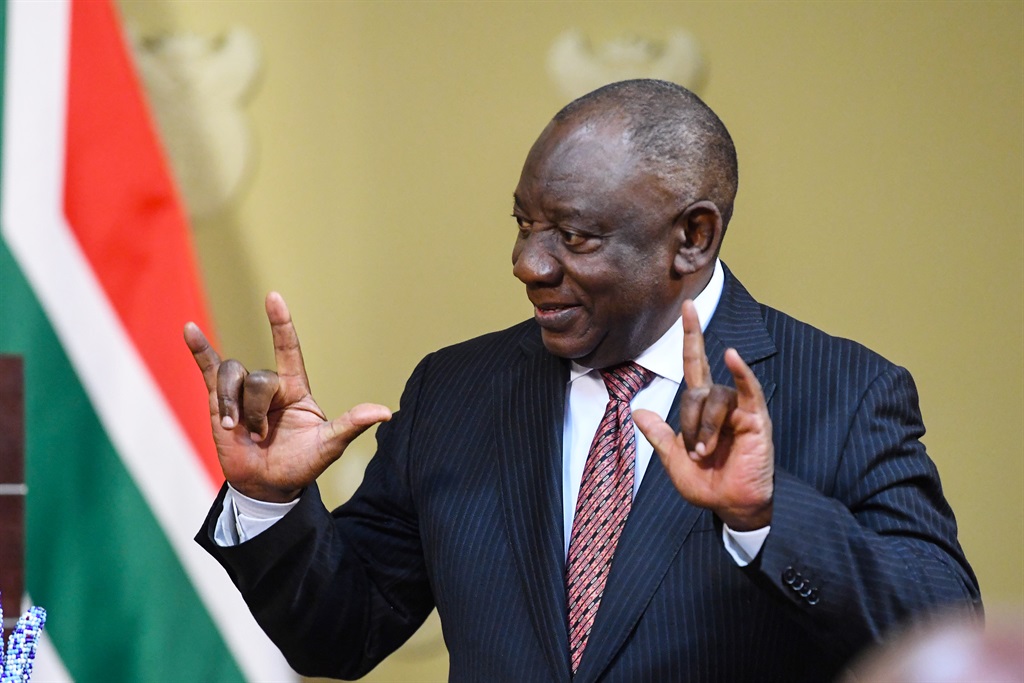
The deaf community voiced concerns about the shortage of teachers for deaf pupils. This comes less than two months after Cyril Ramaphosa announced SA Sign Language as the country’s 12th official language.
Lefty Shivambu/Gallo Images
- The deaf community voiced concerns about the shortage of teachers for deaf pupils.
- On Tuesday, the Wits Centre for Deaf Studies celebrated its 25th anniversary.
- In July, Cyril Ramaphosa announced that SA Sign Language was officially the 12th language.
The deaf community voiced concerns that there were no plans for their future, despite President Cyril Ramaphosa announcing in July that South African Sign Language (SASL) was officially the 12th official language.
On Tuesday, the Wits Centre for Deaf Studies celebrated its 25th anniversary.
It was said that most deaf pupils were illiterate when leaving school.
Tshepo Maseko is a deaf activist, who has been fighting for the language to be recognised officially.
He said: “Now that SASL is an official language, will you sit there and do nothing? We need to go out there and create our own companies.
“You should get a qualification, as a deaf person, and ensure you can train people on how to use the language. We need to stop complaining and register our own companies out there.”
READ | A lone govt official can decide a school must adopt another language, under a draft education law
Ayesha Ramjugernath, a SASL trainer, said: “We are not just going to leave it there to say it’s now an official language, we need to continue fighting. We have to use this achievement to improve our education. Educators should be trained to use proper SASL.”
She said deaf people should be able to easily access universities and colleges.
Robyn Swannack, a PhD student focusing on deaf women’s perception of their well-being, said the biggest challenge for the community was that many organisations were working in silos.
“We don’t have enough accredited interpreters. Teachers cannot sign properly, and children can’t access the language. There are also no signs for healthcare,” she said.
Professor Claudine Storbeck, a director of the Wits Centre for Deaf Studies, said educators teaching deaf pupils did not know the SASL.
Storbeck said:
It has never been a right of a deaf person to access sign language. Two of my colleagues went to court for a sexual assault case. The first time, their interpreter was a student, and the second time, there was no interpreter; as a result, the case was thrown out. Deaf people are abused and cannot report that.
She said sign language was now official – and the government needed to take its implementation seriously.
“Sign language is now official. Bring in the right people who know the language. We cannot waste another day. It took 25 years for SASL to be made an official language. Sadly, children leave school illiterate because educators cannot communicate with them,” she said.